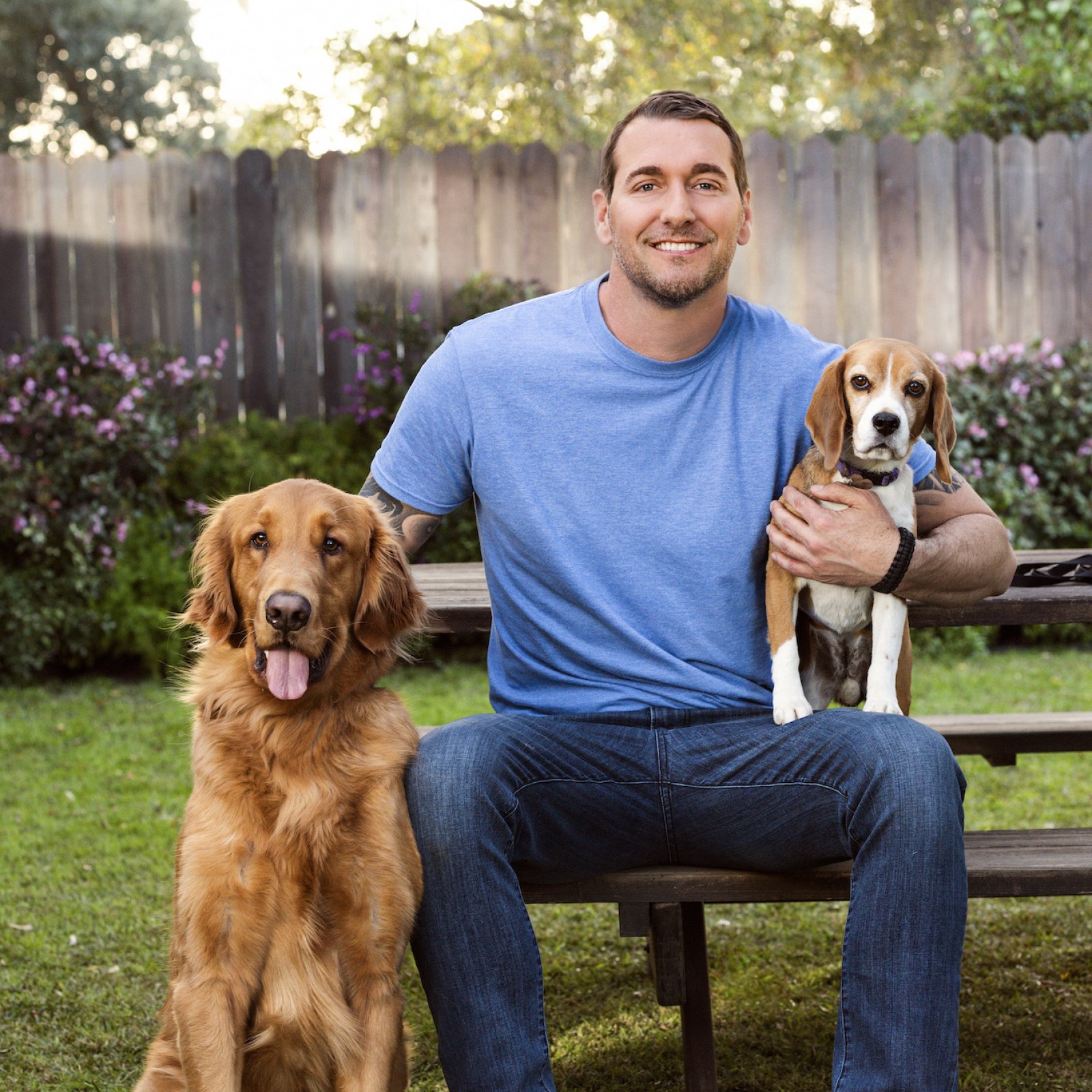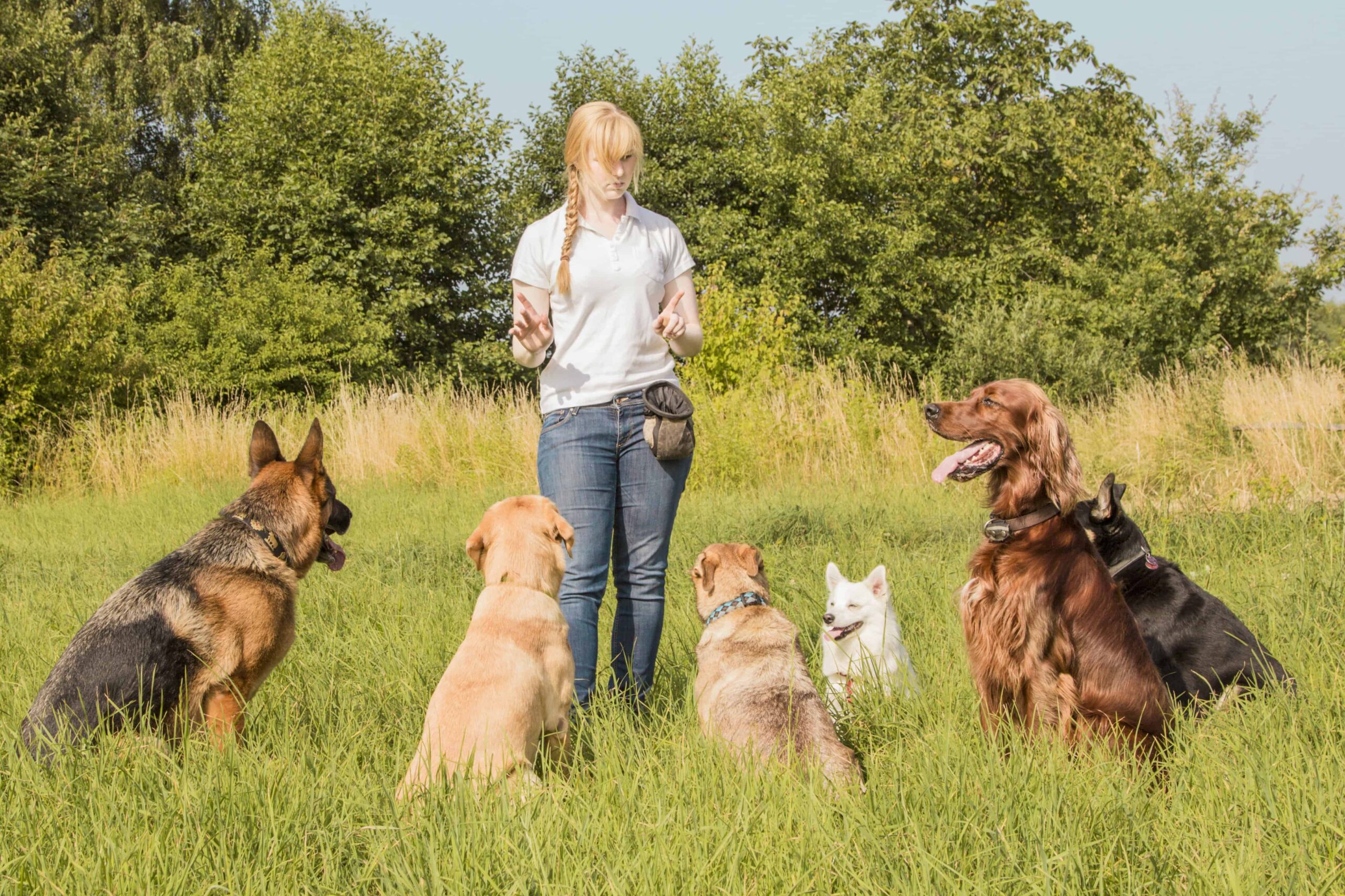Discover Top Tips for Dog Training Charlotte NC That Truly Work
Discover Top Tips for Dog Training Charlotte NC That Truly Work
Blog Article
Unlock Your Pet's Potential: Proven Dog Training Techniques for Success
Reliable pet dog training is a nuanced process that pivots on comprehending canine behavior and using clinically backed strategies. By including positive support, establishing clear commands, and focusing on socialization, dog proprietors can cultivate an efficient relationship with their family pets.
Understanding Pet Habits
Recognizing canine actions is vital for effective training and promoting a positive partnership between pets and their owners. A thorough grasp of canine body movement, articulations, and social interactions is critical for acknowledging their demands and emotions. Dogs interact largely through non-verbal hints; for example, a wagging tail may suggest exhilaration, while pinned ears can signal concern or entry.

Moreover, environmental elements play a significant role in shaping a dog's actions. Adjustments in regular, new surroundings, or the presence of strange people can cause anxiety or stress and anxiety in canines. Recognizing these triggers makes it possible for proprietors to reduce unfavorable responses and create proper training techniques.
Ultimately, a deep understanding of pet habits lays the foundation for effective training techniques, enhancing both habits and the overall bond in between the dog and its proprietor. dog training charlotte. This understanding is important for fostering a well-adjusted, satisfied canine buddy
Positive Reinforcement Strategies
Effective training counts heavily on favorable reinforcement strategies, which have been revealed to produce significant cause shaping preferred behaviors in pet dogs. This method entails rewarding a pet for exhibiting details habits, thus raising the probability that these actions will be duplicated. Rewards can take different kinds, consisting of treats, appreciation, playthings, or playtime, relying on what motivates the private pet.

It is necessary to gradually terminate benefits as the canine finds out the habits, transitioning to intermittent reinforcement. This method maintains the habits in time while avoiding dependence on continuous rewards. By concentrating on positive support, fitness instructors can cultivate a relying on connection with their dogs, advertising a cooperative and healthy and balanced training environment that boosts general obedience and efficiency.
Establishing Regular Commands
An essential facet of successful pet training is the establishment of regular commands. Consistency in commands is critical for efficient interaction between the instructor and the canine. When commands are consistent, pets discover to link specific words with preferred behaviors, which speeds up the training procedure and improves understanding.
To establish constant commands, it is important that all household members utilize the exact same terminology and motions. For instance, if one person uses "sit" while an additional says "take a seat," it can produce confusion for the dog. Select clear, distinctive words for commands and make sure everyone involved in the pet dog's training follows these selections.
Enhance commands through frequent practice, ensuring that the dog receives ample opportunities to react appropriately. When a pet efficiently adheres to a command, instant favorable reinforcement ought to follow.
Last but not least, be patient. Developing regular commands takes some time and effort. With dedication and clarity, you will certainly aid your pet dog establish a strong understanding of assumptions, eventually causing a well-behaved companion.
Socializing and Direct Exposure
Interacting socially a dog is necessary for fostering a certain and well-adjusted companion. This procedure includes subjecting your pet dog to a range of atmospheres, people, and various other animals to develop their social abilities and adaptability. Early socialization, preferably between the ages of 3 to fourteen weeks, is critical, as it lays the foundation for a canine's future actions.
During socializing, goal to offer favorable experiences in different setups, such as parks, busy roads, and homes with other pets. Introduce your canine to various stimulations, including noises, sights, and smells, ensuring that each experience is fulfilling. This exposure aids reduce anxiety and stress and anxiety, leading the way for an extra resilient pet dog.
Engaging in controlled group play sessions with various other pet dogs can additionally boost social abilities, teaching your pet dog appropriate interactions and boundaries. Prioritizing socialization will considerably contribute to your pet dog's general joy and habits throughout their life.
Overcoming Common Training Obstacles

An additional frequent concern is interruption. Pets may have a hard time to focus in unfamiliar or active settings. Slowly desensitize your canine to distractions by starting training in a silent environment and gradually presenting more stimuli as they come to be competent (dog training charlotte). Positive reinforcement strategies, such as treats and appreciation, can maintain motivation and focus.
Furthermore, behavior concerns like leaping or too much barking can become frustrating. Address these by instructing different actions, such as resting calmly when greeting guests. Consistency and patience are important; strengthen preferred habits constantly and stay clear of abuse, which can bring about complication.
Last but not least, acknowledge that each dog is one-of-a-kind, and training timelines might differ. Dressmaker your strategy to your pet's specific demands, and look for expert support if needed. With determination and the ideal methods, getting rid of these difficulties can cause a well-trained, happy canine companion.
Verdict
In verdict, opening a pet dog's potential necessitates a thorough approach that incorporates an understanding of canine actions, the application of favorable reinforcement techniques, and the facility of constant commands. Early socialization and direct exposure to varied atmospheres further boost a pet dog's adaptability and confidence. By addressing usual training difficulties with tailored approaches and persistence, a harmonious and participating connection between pet and handler can be cultivated, eventually leading to original site a well-behaved friend efficient in growing in different situations.
Efficient dog training is a nuanced procedure that hinges on comprehending canine behavior and utilizing scientifically backed methods.Understanding dog actions is necessary for effective training and promoting a favorable connection in between canines and their proprietors.Effective training depends greatly on positive support techniques, which have been shown to generate significant outcomes in forming desired habits in dogs. When commands are uniform, pet dogs learn to associate certain words with desired behaviors, which increases the training procedure and improves understanding.
In conclusion, opening a canine's possible necessitates a detailed strategy that incorporates an understanding of canine habits, the application of favorable support strategies, and the establishment of consistent commands.
Report this page